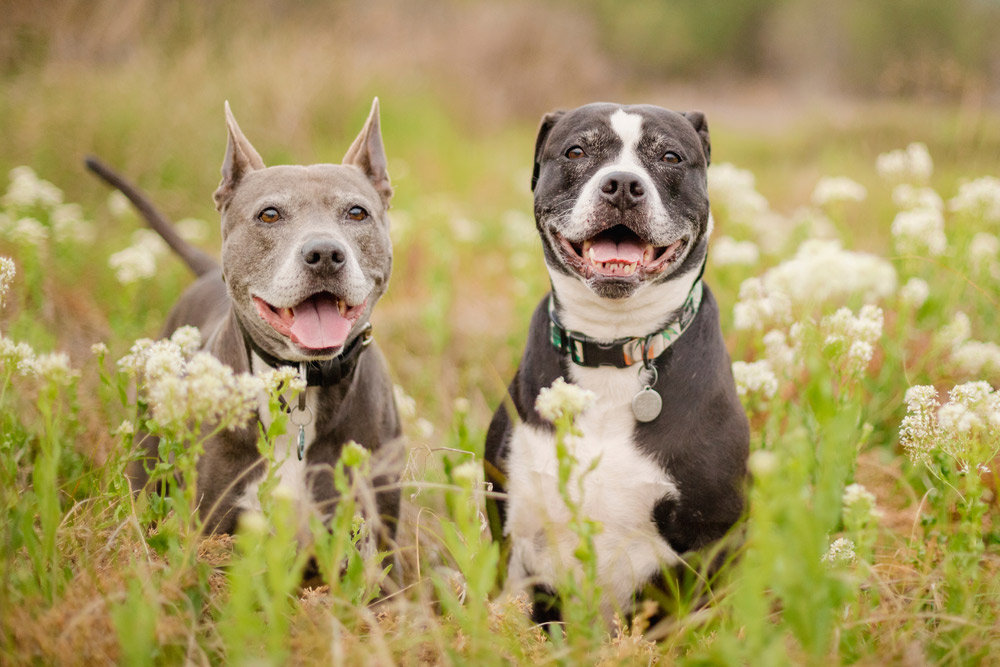Springtime Safety for Pets

The joy of spring and the fun it brings is here! That means it's time for you to get outside with your furry friends to enjoy the sun. However, your pets may not be as cautious as you are, and if you're not careful, you may find your pet in a potentially dangerous situation.
Before you take your pets outside this season, be sure to complete this important safety checklist our team put together.
- Clean out yard debris.
Yard debris can include broken sticks, hedge trimmings, vegetative waste, grass clippings, animal waste, and more. Removing these items from your yard can help ensure a safe space for your pet while playing outside. - Use pet-friendly cleaning products.
Many cleaning products contain harsh chemicals that are toxic to pets. You can create a safer space for your pets by checking the labels of cleaning products before making a purchase. Most likely, cleaning products that are pet-friendly will be labeled as safe for animals. Purchasing these types of products can help keep your pet safe when you begin your spring cleaning. Plant based offerings are great options, along with those that include distilled white vinegar, lemon juice, baking soda and water. - Prevent fleas and ticks.
When it comes to fleas and ticks, your best bet is to combine as many methods as possible to reduce the risk of them getting on your pet. One option is to purchase shampoos that are specifically designed to protect against fleas and ticks. If you have carpet, regular vacuuming and cleaning can also help. After your pet is outside, do a thorough check of their skin to make sure they are free of any pests. One of the most effective methods is a prescription medication from your veterinarian. Be sure to reach out to your local vet if you have questions on other flea and tick preventatives. - Watch out for poisonous plants and berries.
If you have the option of completely removing poisonous plants and berries around your home, it is best to do so. Some things to watch out for are lilies, poison ivy, tulips, daffodils, and oleander. Ingestion of any of these plants may cause vomiting, diarrhea, seizures, liver failure, or worse. If removal is not an option, do your best to remain aware of where these poisonous plants are and steer clear of them. If you can't tell if a plant or berry is poisonous by looking at it, keep your pet away. - Avoid newly fertilized grass.
Fertilizers can contain toxic chemicals that can cause bowel obstruction and inflammation of the pancreas. This can lead to drooling, nausea, vomiting or difficulty breathing. The scent these fertilizers emit can tempt your furry friends. Keep them away from newly fertilized grass for at least 24 hours. - Look out for faux grass and/or other holiday basket scraps.
Many families look forward to springtime because of the annual tradition of egg hunts and candy baskets. Kids search for plastic eggs filled with candy and other prizes, and they also carry candy baskets that often contain faux grass. Naturally, many people leave scraps behind, and our pets' powerful noses are quick to sniff out the leftovers. Remember that chocolate can cause your pets to experience nausea and vomiting, and faux grass can cause various digestive issues. Keep a close eye out for these scraps during your outdoor activities.
Again, preventive maintenance is key. The more proactive you are, the less reactive you will need to be. Your furry friends are counting on you!


